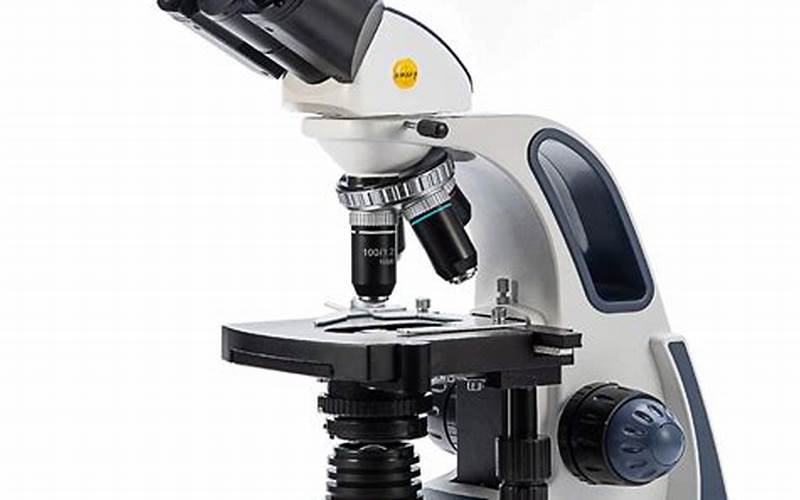Are you or someone you know experiencing signs of mesothelioma? Fear not, as early detection is key in proper treatment. In this guide, we will discuss everything you need to know on how to diagnose mesothelioma.
The Basics of Mesothelioma
Mesothelioma is a rare but serious type of cancer that affects the lining of the lungs, heart, or abdomen. It is caused by exposure to asbestos, a naturally occurring mineral that was once widely used in industries such as construction, automotive, and shipbuilding.
 Source: bing.com
Source: bing.comA mesothelioma diagnosis can be challenging, as symptoms can often mimic other common illnesses. However, early detection is crucial in ensuring successful treatment and prolonging life.
Symptoms of Mesothelioma
The symptoms of mesothelioma are often non-specific and can be mistaken for other illnesses. Below are some common symptoms to watch out for:
| Symptom |
Description |
| Chest pain |
Persistent pain in the chest or rib area, which worsens with deep breathing, coughing, or laughing. |
| Shortness of breath |
Feeling breathless, even at rest or during light activity. |
| Fatigue |
Extreme tiredness that does not go away with rest. |
| Coughing |
A persistent cough that may produce blood or rust-colored sputum. |
| Abdominal pain |
Unexplained pain or swelling in the abdomen. |
| Unexplained weight loss |
Losing weight without trying, even if you have a healthy appetite. |
| Night sweats |
Sweating excessively at night, causing you to wake up with damp clothes or sheets. |
How is Mesothelioma Diagnosed?
Step 1: Medical History
 Source: bing.com
Source: bing.comThe first step in diagnosing mesothelioma is to discuss your medical history with your doctor. This includes discussing your symptoms, any previous medical conditions or surgeries, and your work and environmental history.
Step 2: Physical Exam
After your medical history, your doctor will perform a physical examination. This may include listening to your lungs with a stethoscope for any unusual sounds or checking for swollen lymph nodes.
Step 3: Imaging Tests
Imaging tests are used to create pictures of the inside of the body and can help detect mesothelioma. These may include:
- X-rays
- Computed tomography (CT) scans
- Magnetic resonance imaging (MRI) scans
- Positron emission tomography (PET) scans
Step 4: Biopsy
A biopsy is the only definitive way to diagnose mesothelioma. In this procedure, a small tissue sample is taken from the affected area for further analysis.
Mesothelioma Diagnosis FAQs
Q: Can mesothelioma be diagnosed with a blood test?
A: While there is ongoing research on blood tests for mesothelioma, none are currently available for routine diagnosis. Biopsy remains the most accurate method of diagnosis.
Q: Can mesothelioma be detected early?
A: Yes, mesothelioma can be detected early with regular medical checkups and monitoring of any known asbestos exposure.
Q: How long does it take to diagnose mesothelioma?
A: The time it takes to diagnose mesothelioma can vary depending on the diagnostic tests and processes. In general, it can take several weeks to a few months.
Q: What are the different types of mesothelioma?
A: Mesothelioma is classified into three types based on the location of the cancer: pleural mesothelioma (affecting the lungs), peritoneal mesothelioma (affecting the abdomen), and pericardial mesothelioma (affecting the heart).
Q: Can asbestos exposure always lead to mesothelioma?
A: No, not everyone who is exposed to asbestos will develop mesothelioma. However, long-term exposure and inhalation of asbestos fibers increase the risk of developing the disease.
Q: Can mesothelioma be treated?
A: Yes, there are various treatment options available for mesothelioma, including surgery, chemotherapy, and radiation therapy. The course of treatment depends on several factors, including the type and stage of cancer, as well as the patient’s overall health.
Q: Is mesothelioma curable?
A: While there is currently no cure for mesothelioma, early detection and aggressive treatment can help prolong life and even lead to remission in some cases.
Take Action Against Mesothelioma
 Source: bing.com
Source: bing.comIf you or someone you know may have mesothelioma, it’s important to take action and seek medical attention immediately. Early diagnosis and treatment can make all the difference.
Additionally, if you work or have worked in industries where asbestos exposure is prevalent, such as construction or shipbuilding, be sure to undergo regular medical checkups and report any symptoms to your doctor.
Closing Thoughts
Thank you for reading our guide on how to diagnose mesothelioma. Remember, early detection is key in the successful treatment of this serious disease. Do not hesitate to seek medical attention if you or someone you know is experiencing symptoms.
Disclaimer
This article is not a substitute for medical advice. If you have concerns about your health, please consult with your doctor.
Read Also- Symptoms of Mesothelioma Lung Cancer: Signs to Watch Out For Are you feeling under the weather lately? Do you have difficulty breathing or chest pain? These symptoms might be signs of mesothelioma lung cancer. This rare form of cancer affects…
- How Long Does It Take for Mesothelioma to be Detected? The Importance of Early Detection Source: bing.comMesothelioma is a rare and aggressive form of cancer, with a high mortality rate. The primary cause of mesothelioma is exposure to asbestos, a…
- Stage 4 Mesothelioma Coma: Understanding the Final Stage of… The Shocking Truth About Stage 4 Mesothelioma ComaStage 4 mesothelioma coma is a debilitating and life-threatening condition that occurs when mesothelioma cancer spreads to different parts of the body, resulting…
- NCA Stain Mesothelioma: Understanding the Diagnosis The Importance of Early Detection Source: bing.com Mesothelioma is a rare form of cancer that affects the mesothelium, which is the protective lining around the organs of the body. One…
- Ct Scan Right Pleural Effusion Mesothelioma: All You Need to… Greetings to all our readers! In today's article, we will be discussing a crucial topic in the field of medical imaging - ct scan right pleural effusion mesothelioma. This article…
- ATSIR Mesothelioma: Symptoms, Causes, and Treatment The Importance of Understanding ATSIR MesotheliomaSource: bing.com Mesothelioma is a rare type of cancer that affects the lining of the lungs, chest, or abdomen. This disease can be caused by…
- Orlando Mesothelioma: Everything You Need to Know Hello, and welcome to our comprehensive guide on Orlando mesothelioma. If you or a loved one has been diagnosed with this rare and aggressive cancer, you may be feeling overwhelmed…
- Testicular Mesothelioma Tumor: A Comprehensive Guide A Rare but Aggressive Form of Cancer Source: bing.comGreetings to our readers! We understand the importance of cancer awareness, which is why we are here to provide you with a…
- Types of Mesothelioma: Know the Different Forms of This Rare… Types of Mesothelioma: A Comprehensive GuideGreetings, dear reader! Today, we are going to talk about mesothelioma, a rare but aggressive cancer that mainly affects the lungs, abdomen, and heart. This…
- Mesothelioma Nutrition: Eating Right for Better Health The Importance of Proper Nutrition for Mesothelioma PatientsWelcome to our guide on mesothelioma nutrition! If you or a loved one has been diagnosed with mesothelioma, it's important to understand the…
- Mesothelioma Histopathology Images: Understanding the… Hi there, and welcome to our article about mesothelioma histopathology images. If you're reading this, chances are you or someone you know has been affected by this rare but deadly…
- Exploring Pericardial and Testicular Mesothelioma: Causes,… The Deadly Mesothelioma: A Silent KillerSource: bing.com Mesothelioma is a rare form of cancer that has been linked to exposure to asbestos. This deadly disease affects the lining of the…
- Has Anyone Ever Survived Mesothelioma? The Harsh Reality of Mesothelioma Cancer Source: bing.comAccording to the American Cancer Society, an estimated 2,500 people are diagnosed with mesothelioma every year in the United States alone. This cancer,…
- Mesothelioma Lung Cancer Pictures: Understanding the Disease 📷🔬 Learn About Mesothelioma Lung Cancer Pictures and the Disease They PortrayWelcome to our comprehensive guide on mesothelioma lung cancer pictures. As you may already know, mesothelioma is a rare…
- Primary Pericardial Mesothelioma: A Rare and Deadly Cancer Greetings, dear readers! Today, we would like to talk about a rare and deadly cancer that affects the lining of the heart - primary pericardial mesothelioma. This type of cancer…
- Unlocking the Secrets of Mesothelioma: The Mayo Clinic… IntroductionSource: bing.com Asbestos exposure is one of the leading causes of mesothelioma, a rare and deadly cancer that affects the lining of the lungs, abdomen, and heart. Mesothelioma is difficult…
- asbestos and mesothelioma Title: The Deadly Link between Asbestos and Mesothelioma ☣️IntroductionWelcome to our comprehensive guide on asbestos and mesothelioma. This article is designed to provide you with an in-depth understanding of the…
- Mesothelioma Pictures: A Comprehensive Guide 📷 Understanding Mesothelioma through Pictures 📸Greetings readers! Welcome to our comprehensive guide on mesothelioma pictures. In this article, we aim to provide detailed information about mesothelioma, a rare form of…
- Peritoneal Mesothelioma Asbestos: Causes, Symptoms, and… The Dangers of Peritoneal Mesothelioma Asbestos Source: bing.comPeritoneal mesothelioma is a rare and aggressive form of cancer that affects the lining of the abdomen. It is caused by exposure to…
- Mesothelioma Photos: What You Need to Know IntroductionWelcome to this article on mesothelioma photos. In this article, we will be discussing everything you need to know about mesothelioma, a rare and aggressive cancer that is caused by…
- The Importance of X-Rays in Diagnosing Mesothelioma X-Rays: A Vital Diagnostic Tool for MesotheliomaGreetings esteemed readers! It’s no news that mesothelioma is a fatal disease caused by exposure to asbestos. Unfortunately, its symptoms often mimic those of…
- Epithelioid Malignant Pleural Mesothelioma: Understanding… Source: bing.comMesothelioma is a rare yet deadly form of cancer that is often linked to asbestos exposure. It commonly affects the pleura, which is the lining around the lungs. Among…
- Mesothelioma Mal: Understanding the Deadly Disease Greetings dear readers! In this article, we will be delving into the world of mesothelioma mal, a lethal disease that affects the lining of the lungs and abdomen. Asbestos exposure…
- Mesothelioma Message Meme: Understanding the Significance of… 🚨 The Danger of MesotheliomaMesothelioma is a form of cancer that is caused by asbestos exposure. It affects the thin layer of tissue that covers the lungs, abdomen, and heart.…
- Can the Government Put a Lien on My Mesothelioma? The Shocking Truth Revealed Source: bing.comAre you or someone you know suffering from mesothelioma? Mesothelioma is a rare form of cancer caused by exposure to asbestos. It is a deadly…
- Lawsuit for Mesothelioma Suit: Understanding the Legal… The Devastating Effects of Mesothelioma Source: bing.comWelcome to our comprehensive guide on mesothelioma lawsuits. Mesothelioma is a rare cancer that develops in the lining of the lungs, abdomen, or heart…
- The Asbestos Attorney Law Lawsuit Mesothelioma: A… Welcome to our guide on asbestos attorney law lawsuit mesothelioma. This topic is vital for people who have been exposed to asbestos and are now suffering from mesothelioma. It’s essential…
- Mesothelioma Lawyers by 1800baddrug: Fighting for Justice… The Devastating Effects of MesotheliomaSource: bing.comMesothelioma is a rare but aggressive form of cancer that develops in the protective lining surrounding the lungs, abdomen or heart. It is caused by…
- Mesothelioma IMRT NCDB: The Latest Advancements in Treatment The Rise of Mesothelioma CasesSource: bing.comMesothelioma is a cancer caused by inhaling asbestos fibers, and it poses a significant risk to construction workers and military personnel. The disease takes years…
- Mesothelioma Meme Spongebob: A Definitive Guide IntroductionWelcome to our comprehensive guide on Mesothelioma Meme Spongebob. If you're an avid social media user, you must have come across the Mesothelioma Meme Spongebob. These memes have been doing…